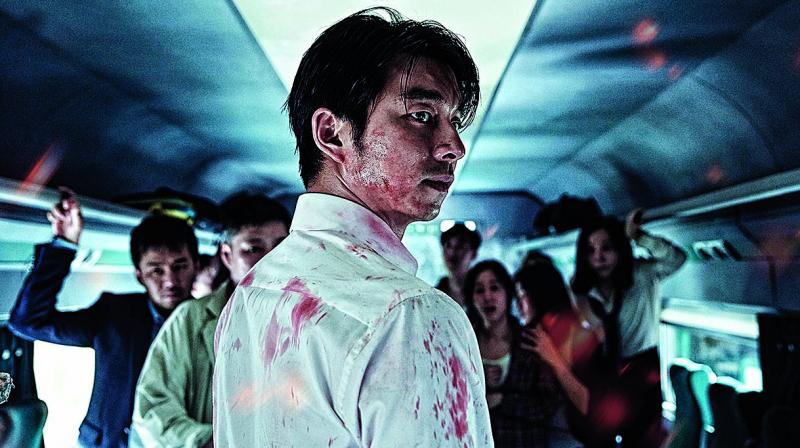Train to Busan movie review: A seriously entertaining ride
Clocking at 118 minutes, the film does not lose pace or focus for even a minute.

Director: Yeon Sang-ho
Cast: Gong Yoo, Ma Dong-Seok, Choi Woo-shik, Kim Soo-an.
Yeon Sang-ho’s Cannes-certified Train to Busan is a zombie thriller that explores the ideas of humanity, love and altruism in a dog-eat-dog world. Seok-woo (Gong Yoo), a fund manager in Seoul is single-mindedly devoted to his job. His preoccupation strains his ties with his family, and he is unable to give his young daughter, Soo-an (Kim Soo-an), the attention that she deserves. On her birthday, he decides to take her to her mother in Busan. Aboard the high-speed KTX at Seoul station, a woman infected with the zombie virus gradually leads to the contamination of everybody else on the train to Busan.
The passengers on the train soon discover that the zombie attacks are occurring nation-wide, and they would invariably get swamped by zombies if they got off at any station. The myriad of passengers on the KTX are a microcosm of not only the South Korean society, but of urban societies everywhere. Besides the over-working young urban professional and his daughter, we have a working-class man, Sang-hwa (played by Ma Dong-Seok), with his pregnant wife, Seong-kyeong, a team of high school baseball players, two elderly sisters, some conscientious members of the railway staff, a corrupt and conniving businessman, and a homeless man who boards the train in a desperate attempt to escape the carnage outside. The interaction of these people from various walks of urban life when death (or rather the lack thereof) stares them squarely in the face provides an interesting social commentary, and thus lifts the film above most other slasher-esque zombie fests. As a tale of survival, it is more on the same track as Titanic, as compared to 28 Days Later.
The zombies are congregated somewhere in the middle of the train, with passengers at both ends getting sandwiched between them and the walls of the train. The enclosed, linear space and the action that unfolds therein renders key scenes suitably thrilling and claustrophobia-inducing. For instance, the passengers run away from the zombies towards the safer coaches of the train, but the fear of getting infected prevents the others from letting them into their coach. Doors are shut in the hapless faces of young and old alike, largely at the behest of the rich who decide whose life is worth saving and whose is dispensable. Once the reason behind the outbreak is revealed, it is hard not to draw parallels with the ongoing immigrant crisis.
There are brief moments of introspection when Seok-woo’s daughter points out his self-centredness. As a child, Soo-an does not understand what it means to put yourself first. She admires Sang-hwa’s bravery and selflessness; they are made of the same moral fibre, and make one ponder over the importance of kind words and acts. In his professional capacity as a fund manager, Seok-woo has deprived one too many souls of financial aid, a sentiment echoed by Sang-hwa. With their lives very much in danger, Seok-woo seeks redemption but is unable to wipe the blood off of his hands.
Clocking at 118 minutes, the film does not lose pace or focus for even a minute. It remains an observation on human nature throughout. Therefore, there are few elements of body horror; the un-death of the zombies, the gimmicky tics and distortions of their bodies never take the centrestage. By staging the events in broad daylight and forgoing the use of a darker palette, Lee Hyung-deok’s cinematography provides an interesting contrast to the grimness of the catastrophe. Ma Dong-seok delivers the most admirable performance in the film, while 10-year old Kim Soo-an displays a mature restraint for a considerable part of the film.
Train to Busan is a fulfilling film because it smoothly blends entertainment and social critique without being didactic; the class struggle between the characters remains subtle yet profound, and the genre of the zombie apocalypse horror film is not compromised. It has plenty to offer both casual and serious cinema-goers.

